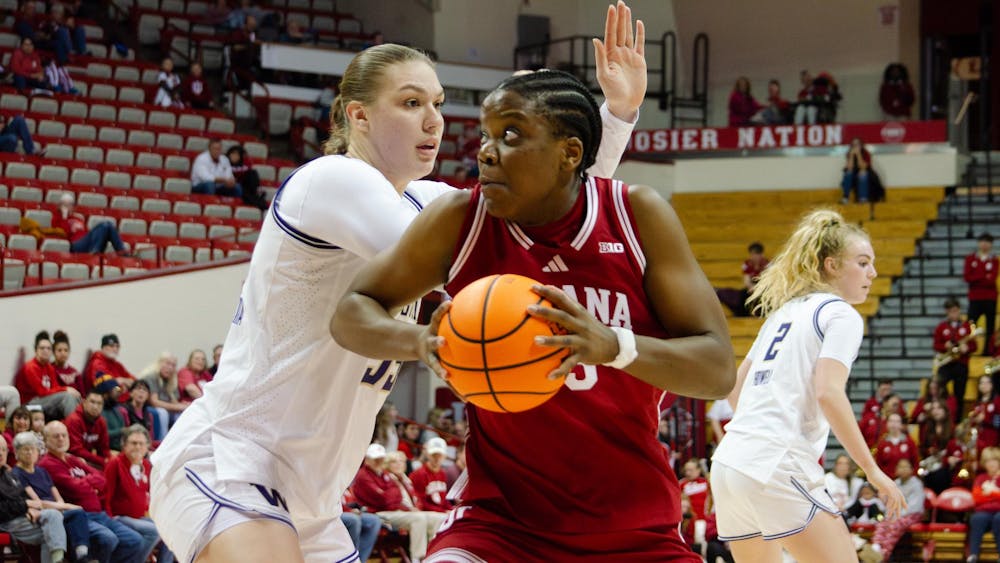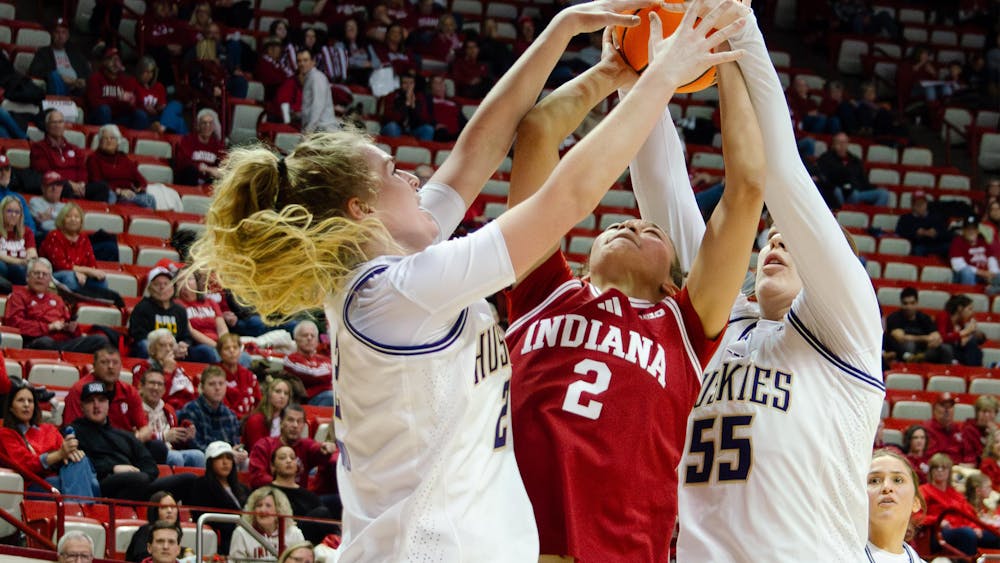In the few weeks since the Residential Housing Association executive board came into office, it has rebuilt its organization for the coming year and hired new committee directors.
When Director of Social Advocacy Andrew Guenther, who is a columnist for the Indiana Daily Student, was interviewed for his position, he was prepared to make major changes, including a new RHA Social Advocacy Council.
“What got him the position is he came in with a 16-page proposal of this council, which completely blew us away,” RHA President Stephanie Corona said. “We thought it was a great idea.”
Guenther proposed a council, to be composed of student leaders from various minority organizations across campus.
Volunteer representatives from nine groups would complete the council. The organizations, as of now, are the Arab Student Association, Asian Student Union, Black Student Union, Gay-Straight Alliance, Hillel Center, Indian Student Association, Latino Cultural Center, Muslim Student Union and the Women’s Student Association.
Guenther said that with 19 percent of the class of 2017 being students of color and another 8 percent being international students, this is a place where these students can discuss struggles.
“These groups are oftentimes the most unsafe, uncomfortable and the most overlooked groups here at Indiana University,” Guenther said. “The Council would serve to give
those groups the attention and voice they deserve.”
They are open to adding more than nine organizations, Guenther said, but these initial groups are representative of the majority of minorities on campus.
“The reason there is an Arab Student Association Delegate and a Muslim Student Union Delegate is because not every Arab is Muslim and not every Muslim is Arab,” he said.
The council would serve as a way for these student representatives to voice their concerns about the residence halls or campus life in general, Guenther said.
Then, these concerns will be addressed through “policy in conjunction with Residential Programs and Services,” Guenther said.
Corona said when she arrived on campus her freshman year, she noticed minority students being underrepresented, and this council is the next big step with the
changes they began to make this past year.
“This past year we were successful in having all apartments that are centers, so Union Street, Willkie and the Hillcrest apartments at Collins, be gender blind, which is a big deal, because those students who identify as transgender would be ousted as soon as they walked on campus,” she said.
RHA plans to collaborate with the IU Student Association, which is also looking to start a “diversity hub,” Guenther said.
While RHA will be focused more on the residence halls, IUSA will focus on non-residence hall students. There will be two separate councils.
“The two diversity hubs were actually started without knowledge of the other, which just shows the mounting need for a Council of this manner,” Guenther said.
Guenther said RHA will allow an IUSA representative to sit in on their council, and said he hopes IUSA does the same.
Corona said the Social Advocacy Council follows right in line with what RHA strives to do on campus.
“I don’t think a council like this exists yet at IU, and it’s our hope that it becomes something of a model for other organizations to use,” Corona said. “Really, the most important thing is just that collaboration, bringing different people from different backgrounds and organizations together to see what can happen.”
So far, five of the nine organizations have decided to commit delegates to the Social Advocacy Council.
Guenther said that although the first meeting for the council isn’t until the fall, he plans to stay in communication with the RHA executive board during the summer and will be open to any suggestions from the IU community.
“This Council will be important to the University because it will give those students who are oftentimes underrepresented or ignored a voice directly to the University administration,” he said. “It will give them a platform to enact cultural and policy changes to better this University for all students and make IU a place where change can start with a handful of concerned students."
RHA to implement Social Advocacy Council
Get stories like this in your inbox
Subscribe





